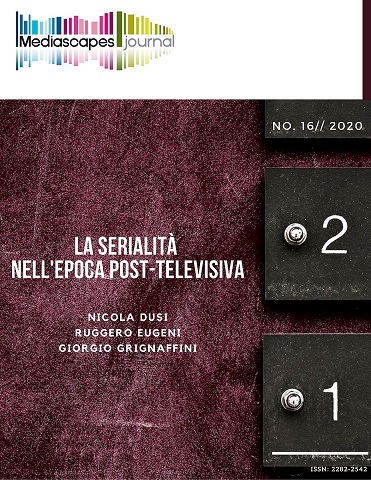Trust, transparency and disintermediation: an analysis of blockchain implementation in the supply-chain
Parole chiave:
blockchain, disintermediation, supply-chain, transparency, trustAbstract
Blockchain represents the backbone of cryptocurrencies, their underlying technology. It can be seen as a large database shared by a peer-to-peer network of users, which collectively validates the information that is recorded on it. Not residing on a single central server, it overcomes a centralised logic, the one used by the best-known web applications like Amazon, Google or Facebook. Instead, DApps (DApp being the acronym of Decentralised Application) are distributed, decentralised applications specifically designed to run on blockchain systems. Blockchain does not involve intermediaries or trusted third parties and its main feature lies in its ability to increase transparency and traceability in transactions. A recent resolution of the European Parliament called for measures to increase the adoption of public and private blockchains, particularly in supply chain management, stating that they can have an indirect effect both at a social and economic level. Several studies have already analysed the potential of blockchain in the agri-food sector, but also in the production and distribution chain of luxury goods or other consumer goods. The existing literature focuses mainly on the role of blockchain in improving the processes related to safety and efficiency of the supply chain, yet it does not seem to problematize the concept of transparency. Despite this, the relationship between transparency and trust, which is generally confirmed by literature, is far from linear. Following an introduction of the technical characteristics of blockchain technology and its possible implementation, we address the way in which blockchain affects the issues of disintermediation, such as in the public sector, where the role of blockchain is still being defined. We also focus on the way blockchain shifts the centre of gravity of trust from an institutional, central entity, either towards the periphery or towards a technological system. Comparing the constructs of trust and transparency, we question the a priori desirability of transparency. In fact, the relationship between trust and transparency becomes rather complex in organizational communication processes. A spotlight is also placed on the aspects that affect the relationship between an organization implementing the blockchain and its relevant stakeholders, along with their different needs. We argue that blockchain still leaves a need for a relationship of trust, as much as the achievement of a trust-free model is pursued. Finally, we mention some of the major critical issues of blockchain, which are still to be resolved.


